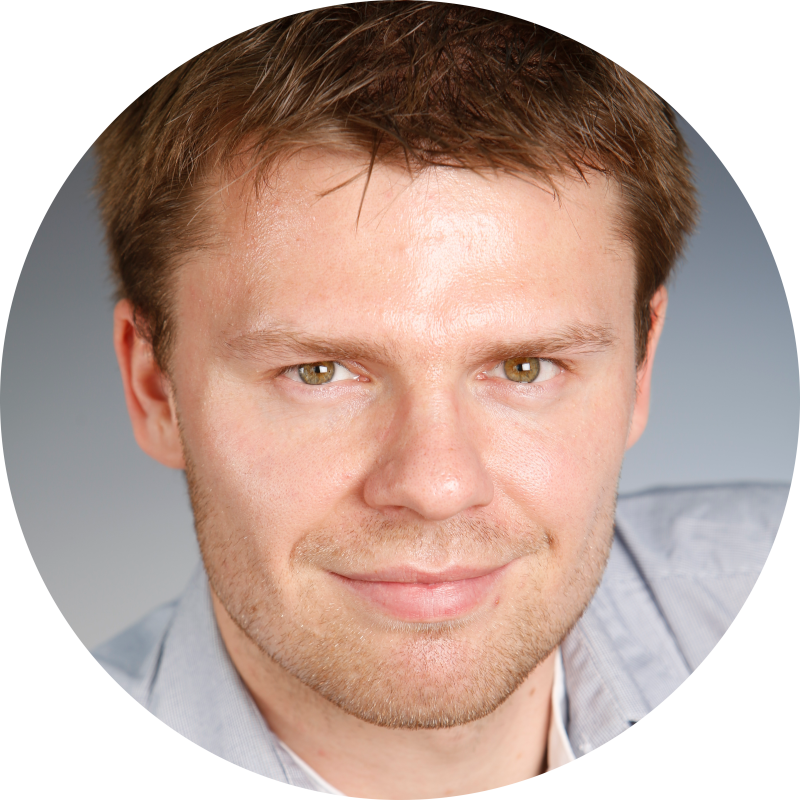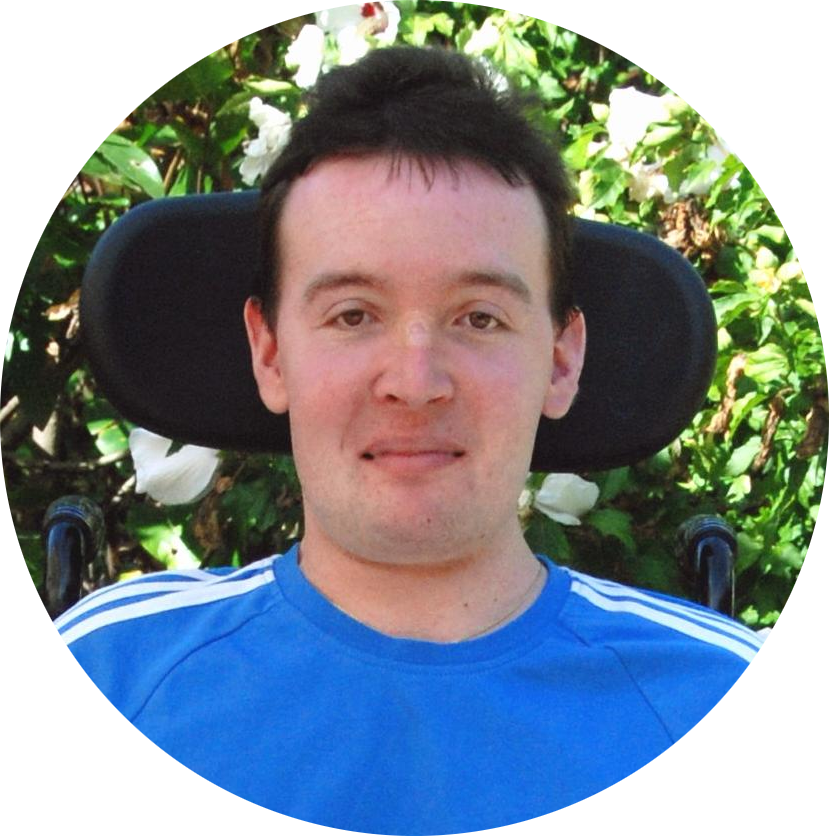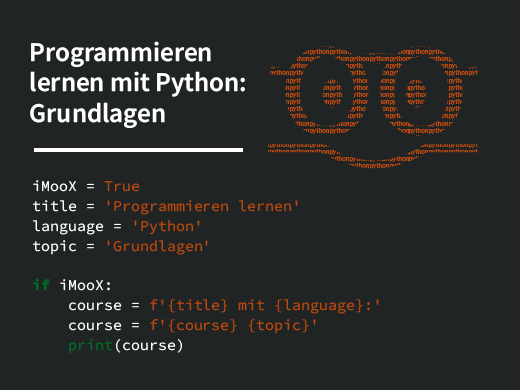Programmieren lernen mit Python: Grundlagen
Kursstart: 22. März 2023
Programmieren lernen mit Python: Grundlagen
Michael Weiß, Gerald Geier, Josef Wachtler
Wissenschaftliche Einordnung:
Kursstart: 22. März 2023
Programmieren lernen mit Python: Grundlagen
Michael Weiß, Gerald Geier, Josef Wachtler
-
Umfang: 4 Lektionen
-
Aufwand: 2 Stunden/Woche
-
Teilnehmende aktuell: 1870
-
Lizenz: CC BY 4.0
-
Kursstart: 22. März 2023
-
Kursende: -
-
Status aktuell: Laufender Kurs
-
Verfügbare Sprachen:
Details zum Kurs
Allgemeine Informationen zum Kurs
Kursinhalt
Dieser MOOC (Massive Open Online Course) soll Interessierten dabei helfen, in die Welt des Programmierens einzusteigen. Dabei wirst du anhand interaktive Videos und Codebeispiele Schritt für Schritt die grundlegenden Konzepte der Programmierung mittels der Sprache Python erlernen. Egal ob du bereits Erfahrung im Programmieren hast oder neu dabei bist, wir sind sicher, dass du aus diesem Kurs viel nützliches Wissen mitnehmen wirst. Für den Kurs benötigen du keine Vorkenntnisse, lediglich einen Desktop-PC oder Laptop mit dem Betriebssystem Windows, Linux oder macOS, um deine selbst geschriebenen Programme ausführen zu können.
Der Kurs gliedert sich in vier Lektion, die aufeinander aufbauen. Im ersten Schritt werden wir uns mit grundlegenden Theorien beschäftigen. Ab der zweiten Lektion beginnen wir mit dem Schreiben von Python Code und lernen und üben neue Programmierkonzepte, insbesondere mit dem Schwerpunkt auf Variablen. In der dritten Lektion werden wir uns damit beschäftigen, wie wir Daten von Benutzer:innen unseres Programms einlesen und wieder ausgeben und lernen wichtige Konzepte kennen, um den Programmfluss zu steuern. In der vierten und letzten Lektion werden wir uns genauer mit dem Datentyp der Listen beschäftigen.
Lernziele
Du kannst ...
- Python-Dateien erstellen, ausführen sowie Variablen anlegen und manipulieren.
- einfache If-Anweisungen verwenden.
- Schleifen wie For und While verwenden.
- Listen erstellen und Listenfunktionen verwenden.
Mit diesen Fähigkeiten bist du in der Lage, einfache und funktionierende Programme zu schreiben und deine Programmierkenntnisse zu vertiefen.
Zertifikat
Lizenz
Kursleitung
Michael Weiß, Gerald Geier, Josef Wachtler

DI Michael Weiß BSc absolvierte das Masterstudium Softwareengineering & Management der Technischen Universität Graz. Zusätzlich zu seinem Studium arbeitet er als Full-Stack Entwickler bei einer Firma in Graz, wo er reichlich Erfahrungen in der Anwendung der Programmiersprache Python sammeln konnte.

Mag. Gerald Geier BSc arbeitet als Fortbildungskoordinator im Fachbereich Informatik/Digitale Bildung am Institut für digitale Medienbildung der Pädagogischen Hochschule Steiermark. Dabei leitet er den Hochschullehrgang Digitale Grundbildung und ist für die Planung und Durchführung der Fortbildungen mitverantwortlich. Weiters hält er Lehrveranstaltungen im Bereich der Informatikdidaktik und beschäftigt sich mit der ganzheitlichen Integration von Digitaler Bildung in der Schule.
Die Tätigkeit als Lehrer für Informatik/Mathematik am BG/BRG/BORG Hartberg und als Lehrveranstaltungsleiter für Digitale Personal- und Organisationsentwicklung an der Donau Universität Krems runden die beruflichen Tätigkeiten ab.

DI Dr. Josef Wachtler BSc arbeitet aktuell bei der OE Lehr- und Lerntechnologien auf der Technischen Universität Graz. Seine wissenschaftlichen Interessen liegen im Bereich des videobasierten Lernens, unterstützt durch interaktive Inhalte, in verschiedenen Umgebungen, wie zum Beispiel Schulen, Universitäten oder MOOCs.
Er ist für die technischen Aspekte eines Projekts verantwortlich, wo Lernapps für Kinder entwickelt und evaluiert werden. Die Unterstützung von Bachelor- und Masterarbeiten ist ebenfalls Teil seiner professionellen Aufgaben.
Er hat viel Erfahrung als Software Ingenieur und Entwickler mit dem Fokus auf der Entwicklung für das Internet. Er liebt Python.
Partner:innen


